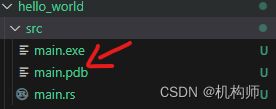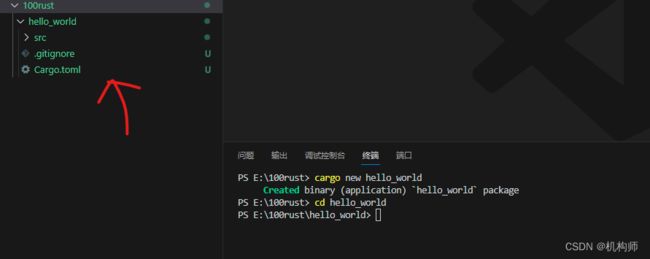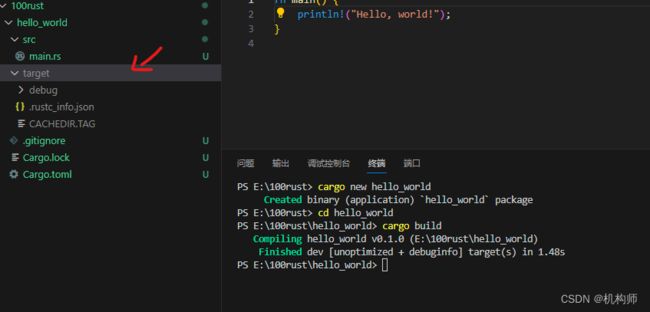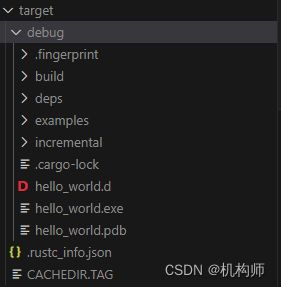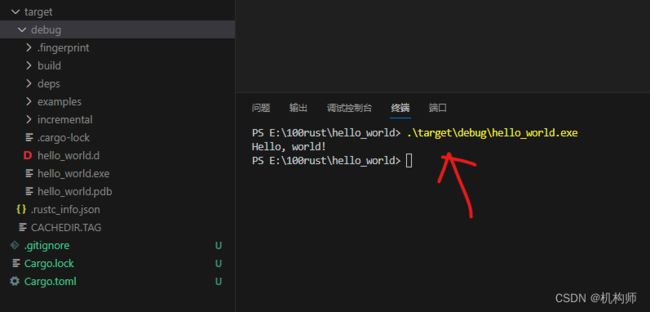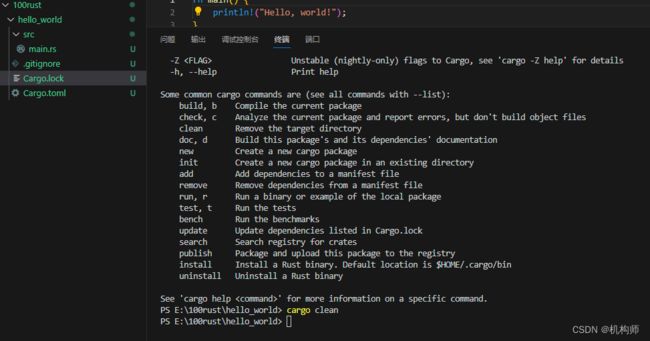- Python uiautomtion模块使用
Midway-Z
python开发语言windows
uiautomation1.引言目的:本指南旨在为想要使用Python进行Windows应用程序自动化的人士提供全面的学习资源。无论你是新手还是有一定经验的开发者,都能从中找到有价值的信息。概述:uiautomation是一个强大的Python库,用于与基于MicrosoftUIAutomation(UIA)框架的应用程序交互。它可以帮助你自动化日常任务、执行软件测试或创建辅助工具。https:/
- DeepSeek vs text2vec:谁更适合Python题库向量提取对比
黑金IT
向量数据库pythonpython开发语言
在Python培训题库提取标题和答案用于学习的应用场景中,选择text2vec-large-chinese和DeepSeek的优劣取决于具体需求和资源限制。以下是对两种模型在该场景下的适用性分析:1.应用场景分析在Python培训题库中,常见的任务可能包括:题目相似度计算:判断题目是否重复或相似。自动分类:将题目按照难度、知识点等分类。智能推荐:根据用户的学习进度推荐相关题目。文本特征提取:用于后
- Python Selenium 库学习指南
不是二师兄的八戒
pythonselenium
PythonSelenium库学习指南目录Selenium基础介绍Selenium是什么安装SeleniumSelenium的工作原理Selenium基本用法启动浏览器定位元素常见操作:点击、输入、滚动高级用法切换窗口与标签页模拟鼠标操作与键盘输入动态加载的网页处理等待机制显式等待与隐式等待等待条件与时间限制Selenium与浏览器交互模拟用户行为上传与下载文件Selenium与JavaScrip
- eNSP中AR2220、AR201、AR1220、AR2240、AR3260、Router、NE40E、NE5000E、NE9000、CX路由器学习笔记
learning-striving
eNSP笔记eNSP路由器路由器接口VRP
eNSP中常见华为路由器型号的接口特性详解及横向对比,重点关注接口类型、扩展能力和适用场景:缩写解释:LPU:LineProcessingUnit(线路处理单元)SPU:ServiceProcessingUnit(业务处理单元)PoE:PoweroverEthernet(以太网供电)GE:GigabitEthernet(千兆以太网)FE:FastEthernet(快速以太网)SFP:SmallFo
- 【数学建模】基于matlab模拟无人车泊车问题仿真
matlab科研助手
数学建模matlab开发语言
✅作者简介:热爱科研的Matlab仿真开发者,修心和技术同步精进,代码获取、论文复现及科研仿真合作可私信。个人主页:Matlab科研工作室个人信条:格物致知。更多Matlab完整代码及仿真定制内容点击智能优化算法神经网络预测雷达通信无线传感器电力系统信号处理图像处理路径规划元胞自动机无人机物理应用机器学习内容介绍无人驾驶汽车技术近年来取得了飞速发展,其中自动泊车功能是关键技术之一。本文将重点讨论无
- AI大语言模型概述:从GPT到BERT的技术演进
AI智能涌现深度研究
AI大模型应用入门实战与进阶DeepSeekR1&大数据AI人工智能计算大数据人工智能语言模型AI大模型LLMJavaPython架构设计AgentRPA
1.背景介绍1.1什么是大语言模型大语言模型是一种基于深度学习的自然语言处理技术,它可以理解和生成人类语言。这些模型通过学习大量的文本数据,捕捉到语言的语法、语义和情感等信息,从而实现对自然语言的理解和生成。1.2为什么大语言模型如此重要大语言模型在近年来取得了显著的进展,它们在各种自然语言处理任务中都取得了最先进的性能。这些任务包括机器翻译、情感分析、文本摘要、问答系统等。大语言模型的成功在很大
- GPT-4.5
开发者每周简报
人工智能
OpenAI正式发布GPT-4.5——迄今为止最强大的AI模型的研究预览版。从今天起,它向Pro用户和开发者开放,引发了全球AI爱好者的热烈讨论。OpenAI团队表示,GPT-4.5是他们迄今为止最大、最强的模型,在预训练和后训练方面实现了重大突破。通过扩展无监督学习,GPT-4.5增强了识别模式、建立联系和创造性洞察的能力,尽管它并不是专门为推理任务设计的。早期测试者表示,与GPT-4.5交互的
- C++学习:多态
DesolateGIS
学习
目录文章目录一、多态的基本语法二、多态的原理剖析三、纯虚函数和抽象类四、虚析构和纯虚析构五、多态的案例案例一:计算机类案例二:制作饮品总结一、多态的基本语法多态分为两类:静态多态:函数重载和运算符重载属于静态多态,复用函数名动态多态:派生类和虚函数实现运行时多态静态多态和动态多态区别:静态多态的函数地址早绑定-编译阶段确定函数地址动态多态的函数地址晚绑定-运行阶段确定函数地址程序调用的结果是动物在
- C++学习:继承
DesolateGIS
学习
文章目录文章目录前言一、继承的基本语法二、继承的方式1.公共继承2.保护继承3.私有继承三、继承中的对象模型四、继承中的构造和析构顺序五、继承同名成员处理方式1.继承同名非静态成员处理方式2.继承同名静态成员处理方式总结前言x继承是一个类从另一个类获取成员变量和成员函数的过程,通过继承创建的新类称为“派生类”或“子类”,被继承的类称为“基类”或“父类”。一、继承的基本语法继承的好处:减少重复代码继
- 数学建模:MATLAB极限学习机解决回归问题
DesolateGIS
数学建模数学建模matlab开发语言
一、简述极限学习机是一种用于训练单隐层前馈神经网络的算法,由输入层、隐藏层、输出层组成。基本原理:输入层接受传入的样本数据。在训练过程中随机生成从输入层到隐藏层的所有连接权重以及每个隐藏层神经元的偏置值,这些参数在整个训练过程中不会被修改。前向传播:输入数据通过已设定的权重和偏置传递给隐藏层,经过激活函数处理后产生隐藏层的输出。在得到隐藏层输出后,需找到从隐藏层到输出层的最佳权重。隐藏层到输出层的
- 自动驾驶系统工程师的技术图谱与学习路径
执于代码
开发者职业加速服务自动驾驶人工智能
自动驾驶系统工程师的技术图谱与学习路径自动驾驶系统工程师是一个跨学科的角色,涵盖了硬件、软件、传感器、算法、控制系统等多个领域。为了清晰展示这一职位所需要掌握的技术,我们可以将其分为多个能力层次,并根据工程师在不同阶段的需求设计学习路径。以下是一个详细的自动驾驶系统工程师技术图谱与学习路径,按照“技能树与能力模型”展示,从基础到进阶,分层次列出了所需的核心技能和学习路线。一、基础能力层(数学、编程
- DeepSeek-R1 技术报告解读:用强化学习激发大模型的推理潜能
跑起来总会有风
aiAI编程论文阅读
文章目录1.背景2.DeepSeek-R1训练流程2.1DeepSeek-R1-Zero:纯强化学习2.2DeepSeek-R1:冷启动+多阶段训练3.蒸馏小模型3.1蒸馏流程与优势3.2蒸馏vs.直接RL4.实验结果4.1主模型表现4.2蒸馏模型表现5.关键创新与思考6.总结参考链接**导读:**DeepSeek-R1是近期发布的一款开源大模型,它将纯强化学习与多阶段训练策略相结合,大幅提升了模
- 将excel文件各列保存为txt的实战代码
爱编程的喵喵
Python基础课程pythonexceltxt实战代码
大家好,我是爱编程的喵喵。双985硕士毕业,现担任全栈工程师一职,热衷于将数据思维应用到工作与生活中。从事机器学习以及相关的前后端开发工作。曾在阿里云、科大讯飞、CCF等比赛获得多次Top名次。现为CSDN博客专家、人工智能领域优质创作者。喜欢通过博客创作的方式对所学的知识进行总结与归纳,不仅形成深入且独到的理解,而且能够帮助新手快速入门。 本文主要介绍了将excel文件各列保存为txt的实
- 强化学习与网络安全资源-论文和环境
AI拉呱
web安全安全
TableofContentsRL-EnvironmentsPapersBooksBlogpostsTalksMiscellaneous↑EnvironmentsPentestingTrainingFrameworkforReinforcementLearningAgents(PenGym)TheARCDPrimary-levelAITrainingEnvironment(PrimAITE)CSL
- pycharm 远程连接服务器 python packaging tool not found
安屿咨询
pythonpycharm服务器开发语言ide
python相关学习资料:https://edu.51cto.com/video/3832.htmlhttps://edu.51cto.com/video/3502.htmlhttps://edu.51cto.com/video/4645.htmlPyCharm远程连接服务器时遇到PythonPackagingToolNotFound的问题在使用PyCharm远程连接服务器进行开发时,可能会遇到“
- ITE Super IO入门篇
YOYO--小天
嵌入式硬件
接触BIOS以来算起来已经有四年了,想着将自己所学的知识记录起来,这样也方便他人学习。这是我的第一篇博客,从SIO开始吧!简介SIO应用在台式机比较多,主要用来做电源管理,如上电时序控制;外围接口扩充,如串口、并口;还有温度、电压监控、智能风扇等。SIO是一个半可定制化的芯片,怎么说是半可定制化呢?比如上电时序,这一部分就是固化好的,而可定制化部分则是逻辑设备(LogicDevice)部分。接入电
- 算八字和阴阳五行(Java基础)
夜不眠,码三千
java开发语言
目录一、引言二、问题描述三、问题分析四、算法分析1.年柱2.月柱3.日柱4.时柱五、完整代码展示六、结果验证七、结语一、引言每年回家过年,亲戚们都会问我“小韩学的什么专业呀,给七大姑八大姨展示一下呀”等等一系列类似的问题。今年在机缘巧合之下,我接触到了算卦,并且通过某音某站学习到了一下关于算卦的一些基础算法,比如说算八字,算五行等等,然后我就有了一个神奇的想法,要是将算卦和Java结合起来会是什么
- PHP学习案例9 双色球
LOVE RICE
php
<?php//创建一个1-33的红色球号码区数组$red_num=range(1,33);//随机从红色球号码区数组获取6个键$keys=array_rand($red_num,6);//打乱
- PHP学习案例8 订货单显示
LOVE RICE
php
'主板','price'=>'379','producing'=>'广东','num'=>3),array
- 探索笔记本EC的奥秘:ITE厂家提供的开源Demo版
曹筱习Dwayne
探索笔记本EC的奥秘:ITE厂家提供的开源Demo版【下载地址】笔记本EC源代码ITE厂家提供的demo版本仓库提供了一个压缩包,内含笔记本EC(EmbeddedController)的源代码,采用C语言编写。该资源适合电子爱好者学习、研究笔记本EC的工作原理和实现方式。源代码由ITE厂家提供,属于demo版,框架已经搭建完成,一般的电脑厂家通常会基于此demo版进行上电时序、IO配置以及增加一些
- 【AI学习】DeepSeek为什么这么火爆?解密梁文锋的深谋远虑
bylander
AI学习AI非常道人工智能学习
重新回头,复盘一下DeepSeek的发展思路,以及未来的发展策略。越想越佩服梁文锋,思路之缜密,令人震惊!DeepSeek发展复盘这几天一直在想这个问题,DeepSeek为什么这么火爆?以及,后续的发展策略?下面是我的思维链。DeepSeek的真正火爆,是在R1发布之后。如果没有发布R1,即使V3的效果好,震动了美国AI界,会有如此火爆吗?这是废话,肯定不会,但是原因呢?我在想如果只发布了V3,即
- 深度学完Java,可选择这些岗位!附带具体工作内容与代码示例
培风图南以星河揽胜
javajava开发语言
Java作为一种功能强大、应用广泛的编程语言,在软件开发领域具有举足轻重的地位。对于学习Java编程的同学来说,掌握这门语言后,将面临众多职业选择。今天,我们就来详细探讨一下学完Java后可以选择的一些主要岗位,以及这些岗位的具体工作内容,并附上相应的代码示例。1.Java开发工程师工作内容:需求分析与设计:参与项目需求分析,根据需求文档进行系统概要设计和详细设计。编码实现:使用Java语言进行代
- 神经进化算法(Neuroevolution) 原理与代码实例讲解
AI大模型应用之禅
DeepSeekR1&AI大模型与大数据javapythonjavascriptkotlingolang架构人工智能
神经进化算法,Neuroevolution,进化算法,深度学习,机器学习,遗传算法,神经网络,代码实例1.背景介绍在机器学习领域,神经网络凭借其强大的学习能力和泛化能力,在图像识别、自然语言处理、语音识别等领域取得了显著的成就。然而,传统的神经网络训练方法通常依赖于人工设计的网络结构和参数初始化,这往往需要大量的经验和试错,并且难以找到最优的网络结构和参数。神经进化算法(Neuroevolutio
- Day1、 Vue3 入门指南
码有余悸
Vue3vuevue.jshtml
「本专栏是我在学习Vue3过程中的总结与分享,旨在帮助初学者快速上手Vue3。由于我也在持续学习中,如果有任何疏漏或错误,欢迎大家在评论区指正,我们一起进步!」提示:使用该文档学习vue3需要有一些vue和vue2的基础才可以更好的学习噢~~版权:未经允许,禁止转载!鼓励:学习是一个缓慢的过程,唯有时间能证明一切,加油吧@所有人!!!目录前言一、Vue3的简介1.Vue3是什么?2.Vue3能做什
- Day7、Vue3 组件通信技术
码有余悸
Vue3vue.jsjavascript前端
「本专栏是我在学习Vue3过程中的总结与分享,旨在帮助初学者快速上手Vue3。由于我也在持续学习中,如果有任何疏漏或错误,欢迎大家在评论区指正,我们一起进步!」提示:使用该文档学习vue3需要有一些vue和vue2的基础才可以更好的学习噢~~版权:未经允许,禁止转载!鼓励:每一次自我怀疑,都是成长的信号,它在提醒你正站在突破的边缘。大胆向前,你的能力远超想象,自信会为你推开成功之门。———————
- 神经架构搜索 原理与代码实例讲解
AI天才研究院
DeepSeekR1&大数据AI人工智能大模型AI大模型企业级应用开发实战大厂Offer收割机面试题简历程序员读书硅基计算碳基计算认知计算生物计算深度学习神经网络大数据AIGCAGILLMJavaPython架构设计Agent程序员实现财富自由
神经架构搜索:原理与代码实例讲解作者:禅与计算机程序设计艺术/ZenandtheArtofComputerProgramming1.背景介绍1.1问题的由来随着深度学习的快速发展,神经网络在各个领域取得了显著的成果。然而,设计一个高效、通用的神经网络架构仍然是一个具有挑战性的问题。手动设计网络架构需要大量的专业知识和经验,而且往往效率低下。因此,神经架构搜索(NeuralArchitectureS
- “一起学 HarmonyOS”第二弹获奖名单来啦~
harmonyos
亲爱的小伙伴们,感谢参与“一起学HarmonyOS”第二弹技术问答活动,本次活动的获奖名单来啦~获奖名单学习宣传奖获奖用户完成项李游LeoLevel0Swift社区Level0奖品:技术书籍1本社区白银电子勋章「挑战者」学习萌新奖获奖用户完成项完美的荒野_sQfjyLevel1木槿Level1求醉的灌汤包Level1不开心的扁豆_cll5hnLevel1苦闷的伤疤Level1时尚的小摩托_kgMU
- 前端学习——HTML
W起名有点难
学习笔记前端学习html
VSCode常用快捷键代码格式化:Shift+Alt+F向上或向下移动一行:Alt+Up或Alt+Down快速复制一行代码:Shift+Alt+Up或者Shift+Alt+Down快速替换:Ctrl+HHTML标签文本标签定义着重文字定义粗体文字定义斜体文字加重语气删除字无特定含义列表标签1、有序列表//type可以改变列表项目标签//1:用数字标号;A:用大写字母标号;a:用小写字母标号;i:小
- w238光影视频平台
卓怡学长
计算机毕业设计javaspringspringboot数据库课程设计maven
作者简介:多年一线开发工作经验,原创团队,分享技术代码帮助学生学习,独立完成自己的网站项目。代码可以查看文章末尾⬇️联系方式获取,记得注明来意哦~赠送计算机毕业设计600个选题excel文件,帮助大学选题。赠送开题报告模板,帮助书写开题报告。作者完整代码目录供你选择:《Springboot网站项目》400套《ssm网站项目》800套《小程序项目》300套《App项目》500套《Python网站项目
- 强者联盟——Python语言结合Spark框架
博文视点
全栈工程师全栈全栈数据SparkPythonPySpark
引言:Spark由AMPLab实验室开发,其本质是基于内存的快速迭代框架,“迭代”是机器学习最大的特点,因此非常适合做机器学习。得益于在数据科学中强大的表现,Python语言的粉丝遍布天下,如今又遇上强大的分布式内存计算框架Spark,两个领域的强者走到一起,自然能碰出更加强大的火花(Spark可以翻译为火花),因此本文主要讲述了PySpark。本文选自《全栈数据之门》。全栈框架Spark由AMP
- 矩阵求逆(JAVA)初等行变换
qiuwanchi
矩阵求逆(JAVA)
package gaodai.matrix;
import gaodai.determinant.DeterminantCalculation;
import java.util.ArrayList;
import java.util.List;
import java.util.Scanner;
/**
* 矩阵求逆(初等行变换)
* @author 邱万迟
*
- JDK timer
antlove
javajdkschedulecodetimer
1.java.util.Timer.schedule(TimerTask task, long delay):多长时间(毫秒)后执行任务
2.java.util.Timer.schedule(TimerTask task, Date time):设定某个时间执行任务
3.java.util.Timer.schedule(TimerTask task, long delay,longperiod
- JVM调优总结 -Xms -Xmx -Xmn -Xss
coder_xpf
jvm应用服务器
堆大小设置JVM 中最大堆大小有三方面限制:相关操作系统的数据模型(32-bt还是64-bit)限制;系统的可用虚拟内存限制;系统的可用物理内存限制。32位系统下,一般限制在1.5G~2G;64为操作系统对内存无限制。我在Windows Server 2003 系统,3.5G物理内存,JDK5.0下测试,最大可设置为1478m。
典型设置:
java -Xmx
- JDBC连接数据库
Array_06
jdbc
package Util;
import java.sql.Connection;
import java.sql.DriverManager;
import java.sql.ResultSet;
import java.sql.SQLException;
import java.sql.Statement;
public class JDBCUtil {
//完
- Unsupported major.minor version 51.0(jdk版本错误)
oloz
java
java.lang.UnsupportedClassVersionError: cn/support/cache/CacheType : Unsupported major.minor version 51.0 (unable to load class cn.support.cache.CacheType)
at org.apache.catalina.loader.WebappClassL
- 用多个线程处理1个List集合
362217990
多线程threadlist集合
昨天发了一个提问,启动5个线程将一个List中的内容,然后将5个线程的内容拼接起来,由于时间比较急迫,自己就写了一个Demo,希望对菜鸟有参考意义。。
import java.util.ArrayList;
import java.util.List;
import java.util.concurrent.CountDownLatch;
public c
- JSP简单访问数据库
香水浓
sqlmysqljsp
学习使用javaBean,代码很烂,仅为留个脚印
public class DBHelper {
private String driverName;
private String url;
private String user;
private String password;
private Connection connection;
privat
- Flex4中使用组件添加柱状图、饼状图等图表
AdyZhang
Flex
1.添加一个最简单的柱状图
? 1 2 3 4 5 6 7 8 9 10 11 12 13 14 15 16 17 18 19 20 21 22 23 24 25 26 27 28
<?xml version=
"1.0"&n
- Android 5.0 - ProgressBar 进度条无法展示到按钮的前面
aijuans
android
在低于SDK < 21 的版本中,ProgressBar 可以展示到按钮前面,并且为之在按钮的中间,但是切换到android 5.0后进度条ProgressBar 展示顺序变化了,按钮再前面,ProgressBar 在后面了我的xml配置文件如下:
[html]
view plain
copy
<RelativeLa
- 查询汇总的sql
baalwolf
sql
select list.listname, list.createtime,listcount from dream_list as list , (select listid,count(listid) as listcount from dream_list_user group by listid order by count(
- Linux du命令和df命令区别
BigBird2012
linux
1,两者区别
du,disk usage,是通过搜索文件来计算每个文件的大小然后累加,du能看到的文件只是一些当前存在的,没有被删除的。他计算的大小就是当前他认为存在的所有文件大小的累加和。
- AngularJS中的$apply,用还是不用?
bijian1013
JavaScriptAngularJS$apply
在AngularJS开发中,何时应该调用$scope.$apply(),何时不应该调用。下面我们透彻地解释这个问题。
但是首先,让我们把$apply转换成一种简化的形式。
scope.$apply就像一个懒惰的工人。它需要按照命
- [Zookeeper学习笔记十]Zookeeper源代码分析之ClientCnxn数据序列化和反序列化
bit1129
zookeeper
ClientCnxn是Zookeeper客户端和Zookeeper服务器端进行通信和事件通知处理的主要类,它内部包含两个类,1. SendThread 2. EventThread, SendThread负责客户端和服务器端的数据通信,也包括事件信息的传输,EventThread主要在客户端回调注册的Watchers进行通知处理
ClientCnxn构造方法
&
- 【Java命令一】jmap
bit1129
Java命令
jmap命令的用法:
[hadoop@hadoop sbin]$ jmap
Usage:
jmap [option] <pid>
(to connect to running process)
jmap [option] <executable <core>
(to connect to a
- Apache 服务器安全防护及实战
ronin47
此文转自IBM.
Apache 服务简介
Web 服务器也称为 WWW 服务器或 HTTP 服务器 (HTTP Server),它是 Internet 上最常见也是使用最频繁的服务器之一,Web 服务器能够为用户提供网页浏览、论坛访问等等服务。
由于用户在通过 Web 浏览器访问信息资源的过程中,无须再关心一些技术性的细节,而且界面非常友好,因而 Web 在 Internet 上一推出就得到
- unity 3d实例化位置出现布置?
brotherlamp
unity教程unityunity资料unity视频unity自学
问:unity 3d实例化位置出现布置?
答:实例化的同时就可以指定被实例化的物体的位置,即 position
Instantiate (original : Object, position : Vector3, rotation : Quaternion) : Object
这样你不需要再用Transform.Position了,
如果你省略了第二个参数(
- 《重构,改善现有代码的设计》第八章 Duplicate Observed Data
bylijinnan
java重构
import java.awt.Color;
import java.awt.Container;
import java.awt.FlowLayout;
import java.awt.Label;
import java.awt.TextField;
import java.awt.event.FocusAdapter;
import java.awt.event.FocusE
- struts2更改struts.xml配置目录
chiangfai
struts.xml
struts2默认是读取classes目录下的配置文件,要更改配置文件目录,比如放在WEB-INF下,路径应该写成../struts.xml(非/WEB-INF/struts.xml)
web.xml文件修改如下:
<filter>
<filter-name>struts2</filter-name>
<filter-class&g
- redis做缓存时的一点优化
chenchao051
redishadooppipeline
最近集群上有个job,其中需要短时间内频繁访问缓存,大概7亿多次。我这边的缓存是使用redis来做的,问题就来了。
首先,redis中存的是普通kv,没有考虑使用hash等解结构,那么以为着这个job需要访问7亿多次redis,导致效率低,且出现很多redi
- mysql导出数据不输出标题行
daizj
mysql数据导出去掉第一行去掉标题
当想使用数据库中的某些数据,想将其导入到文件中,而想去掉第一行的标题是可以加上-N参数
如通过下面命令导出数据:
mysql -uuserName -ppasswd -hhost -Pport -Ddatabase -e " select * from tableName" > exportResult.txt
结果为:
studentid
- phpexcel导出excel表简单入门示例
dcj3sjt126com
PHPExcelphpexcel
先下载PHPEXCEL类文件,放在class目录下面,然后新建一个index.php文件,内容如下
<?php
error_reporting(E_ALL);
ini_set('display_errors', TRUE);
ini_set('display_startup_errors', TRUE);
if (PHP_SAPI == 'cli')
die('
- 爱情格言
dcj3sjt126com
格言
1) I love you not because of who you are, but because of who I am when I am with you. 我爱你,不是因为你是一个怎样的人,而是因为我喜欢与你在一起时的感觉。 2) No man or woman is worth your tears, and the one who is, won‘t
- 转 Activity 详解——Activity文档翻译
e200702084
androidUIsqlite配置管理网络应用
activity 展现在用户面前的经常是全屏窗口,你也可以将 activity 作为浮动窗口来使用(使用设置了 windowIsFloating 的主题),或者嵌入到其他的 activity (使用 ActivityGroup )中。 当用户离开 activity 时你可以在 onPause() 进行相应的操作 。更重要的是,用户做的任何改变都应该在该点上提交 ( 经常提交到 ContentPro
- win7安装MongoDB服务
geeksun
mongodb
1. 下载MongoDB的windows版本:mongodb-win32-x86_64-2008plus-ssl-3.0.4.zip,Linux版本也在这里下载,下载地址: http://www.mongodb.org/downloads
2. 解压MongoDB在D:\server\mongodb, 在D:\server\mongodb下创建d
- Javascript魔法方法:__defineGetter__,__defineSetter__
hongtoushizi
js
转载自: http://www.blackglory.me/javascript-magic-method-definegetter-definesetter/
在javascript的类中,可以用defineGetter和defineSetter_控制成员变量的Get和Set行为
例如,在一个图书类中,我们自动为Book加上书名符号:
function Book(name){
- 错误的日期格式可能导致走nginx proxy cache时不能进行304响应
jinnianshilongnian
cache
昨天在整合某些系统的nginx配置时,出现了当使用nginx cache时无法返回304响应的情况,出问题的响应头: Content-Type:text/html; charset=gb2312 Date:Mon, 05 Jan 2015 01:58:05 GMT Expires:Mon , 05 Jan 15 02:03:00 GMT Last-Modified:Mon, 05
- 数据源架构模式之行数据入口
home198979
PHP架构行数据入口
注:看不懂的请勿踩,此文章非针对java,java爱好者可直接略过。
一、概念
行数据入口(Row Data Gateway):充当数据源中单条记录入口的对象,每行一个实例。
二、简单实现行数据入口
为了方便理解,还是先简单实现:
<?php
/**
* 行数据入口类
*/
class OrderGateway {
/*定义元数
- Linux各个目录的作用及内容
pda158
linux脚本
1)根目录“/” 根目录位于目录结构的最顶层,用斜线(/)表示,类似于
Windows
操作系统的“C:\“,包含Fedora操作系统中所有的目录和文件。 2)/bin /bin 目录又称为二进制目录,包含了那些供系统管理员和普通用户使用的重要
linux命令的二进制映像。该目录存放的内容包括各种可执行文件,还有某些可执行文件的符号连接。常用的命令有:cp、d
- ubuntu12.04上编译openjdk7
ol_beta
HotSpotjvmjdkOpenJDK
获取源码
从openjdk代码仓库获取(比较慢)
安装mercurial Mercurial是一个版本管理工具。 sudo apt-get install mercurial
将以下内容添加到$HOME/.hgrc文件中,如果没有则自己创建一个: [extensions] forest=/home/lichengwu/hgforest-crew/forest.py fe
- 将数据库字段转换成设计文档所需的字段
vipbooks
设计模式工作正则表达式
哈哈,出差这么久终于回来了,回家的感觉真好!
PowerDesigner的物理数据库一出来,设计文档中要改的字段就多得不计其数,如果要把PowerDesigner中的字段一个个Copy到设计文档中,那将会是一件非常痛苦的事情。

